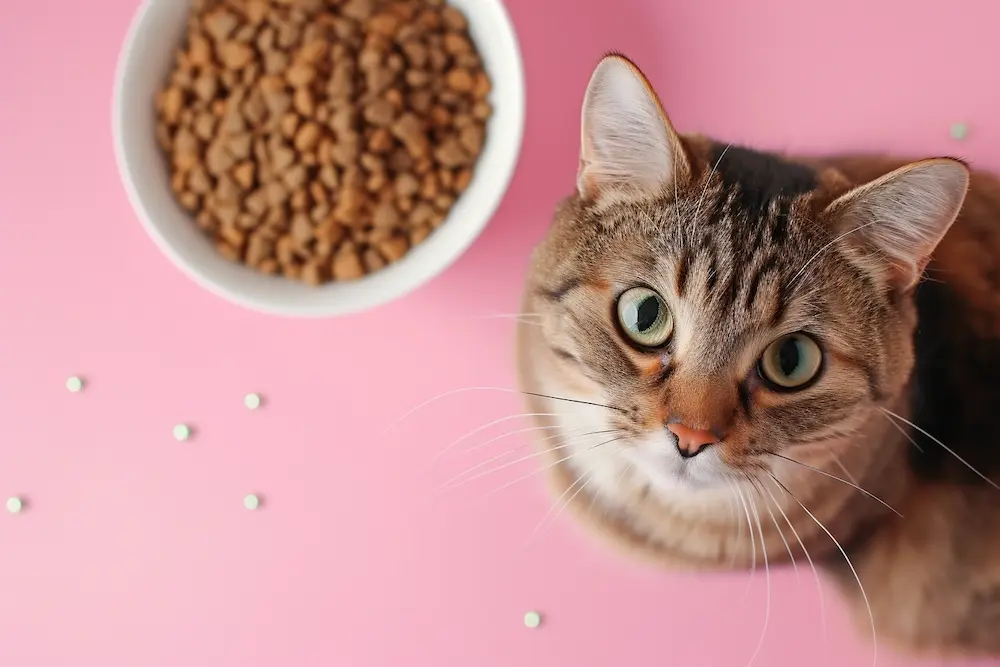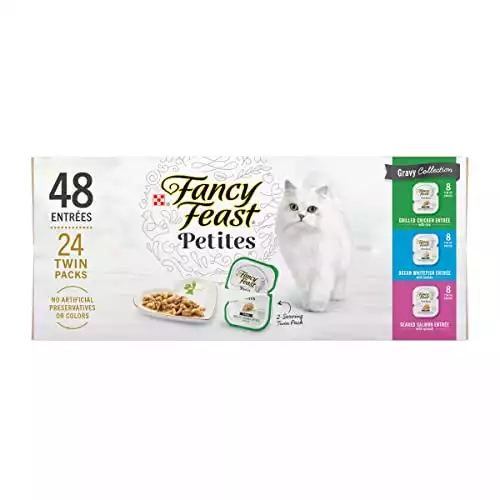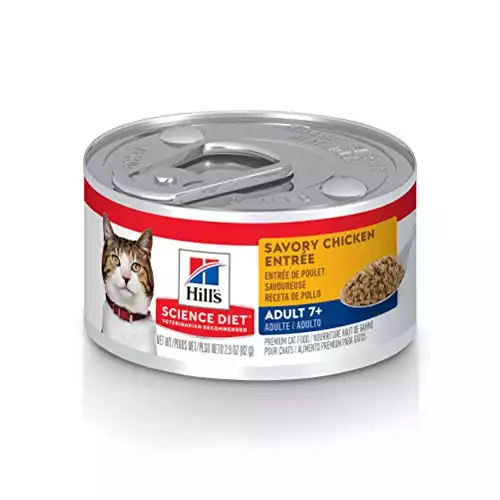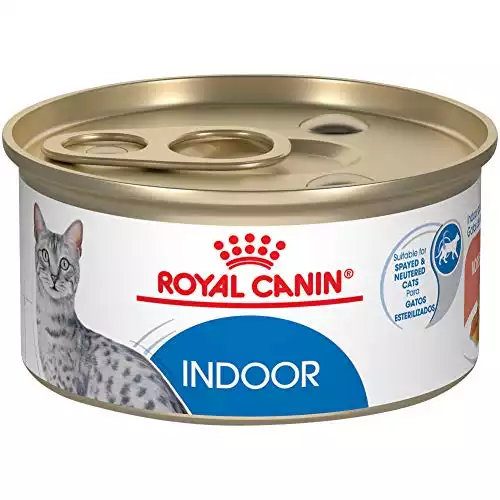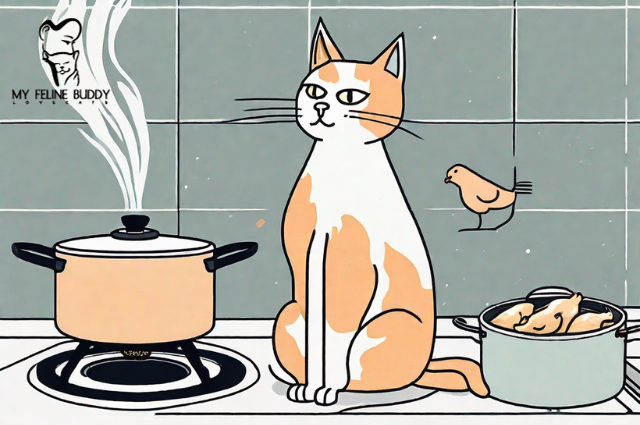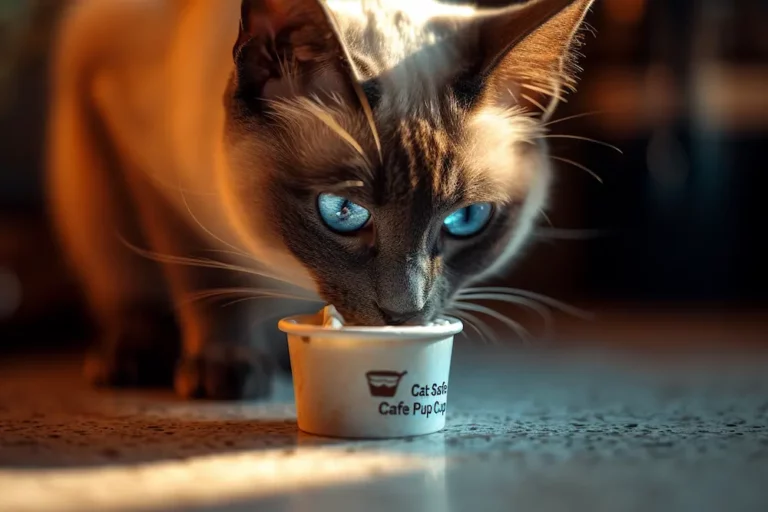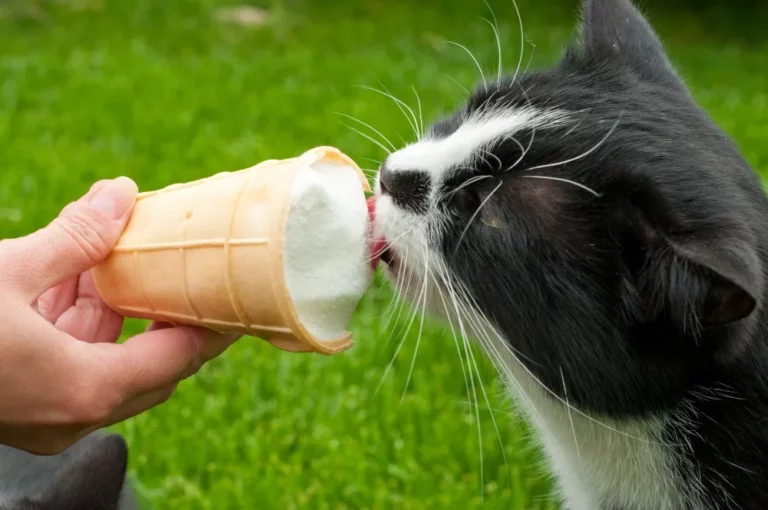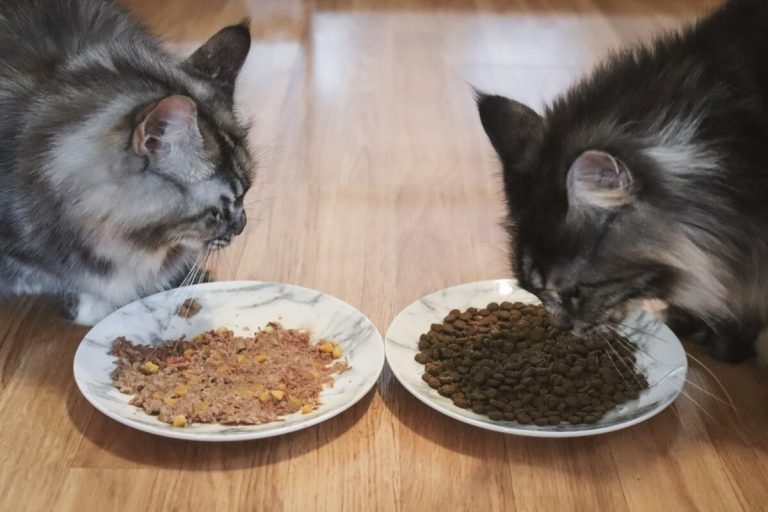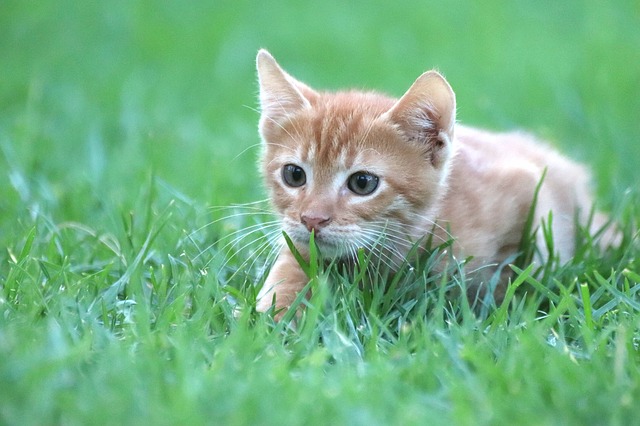Best Cat Food: Nutrition, Quality & Top Picks
|
4.7
|
4.3
|
4.4
|
Ever wondered what’s really the best food to keep your
Choosing the right
It’s a common dilemma for
What if I told you that finding the perfect meal for your kitty doesn’t have to be a guessing game?
From the vet-recommended to the top picks for sensitive stomachs, I’ve sifted through the options to bring you a guide to the best
Whether you’re on the hunt for the finest dry food, the most nutritious wet food, or something that’ll help your kitten thrive, this article has got you covered.
Let’s jump into the world of
Essential Nutritional Considerations for Cat Food
When I jump into the world of
But, over the years, I’ve learned that understanding your
Below, I’ll break down the key nutritional considerations every
Protein Is Key!
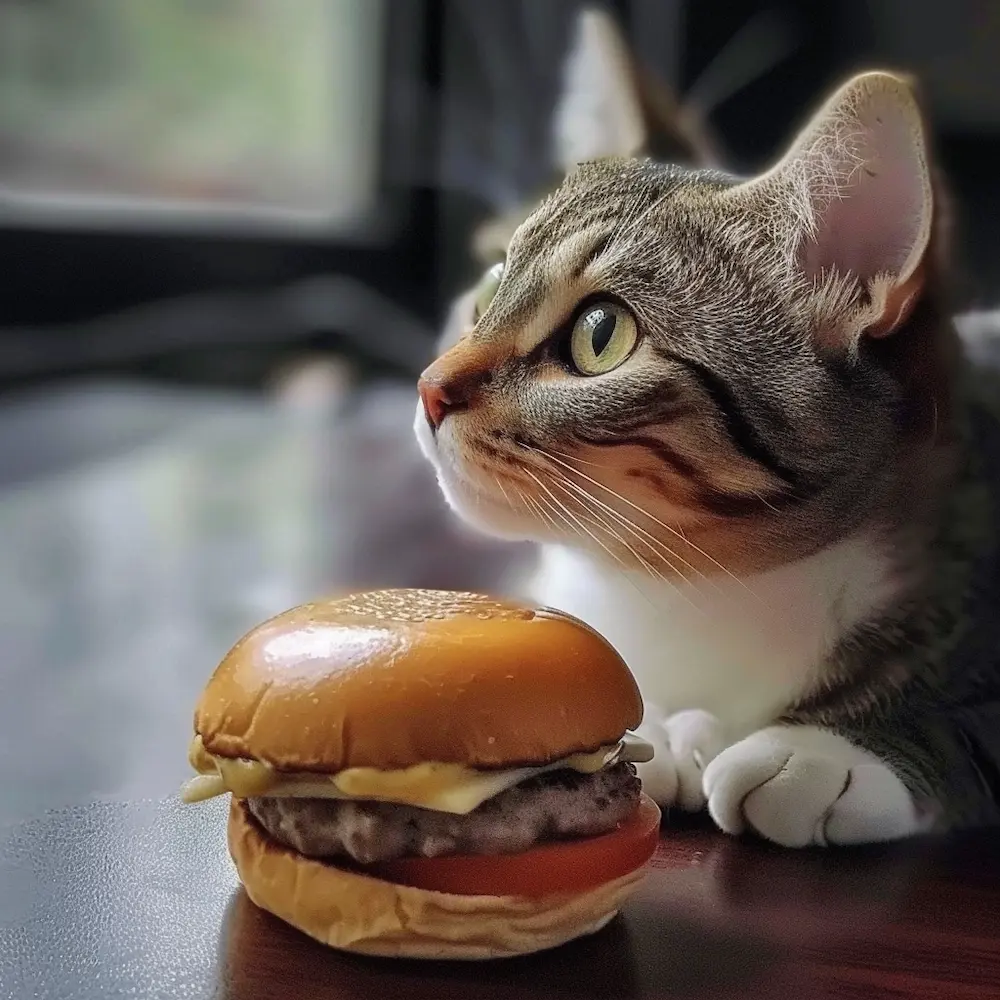
Cats are obligate carnivores.
This means they thrive on a diet that’s rich in animal-based proteins.
Proteins are crucial for a variety of functions in a
When selecting the best
An easy way to understand this is by comparing it to our human need for a balanced diet; just as we need a mix of foods to be healthy, cats need quality protein as their staple.
Fats and Carbohydrates
Fats are another essential component of a
But, the trick is in finding the right balance.
Too little fat can lead to deficiencies, while too much can contribute to obesity.
Look for foods with a moderate fat content and sources like fish oil, which also supply omega-3 fatty acids beneficial for skin and coat health.
Carbohydrates, on the other hand, should be present in smaller amounts.
Cats don’t have a high requirement for carbs, and excess can lead to weight gain.
Some carbs are necessary for energy and to help the food keep its shape, so don’t be afraid of seeing some in the ingredient list.
Just ensure they come from digestible sources like vegetables and whole grains.
Vitamins and Minerals
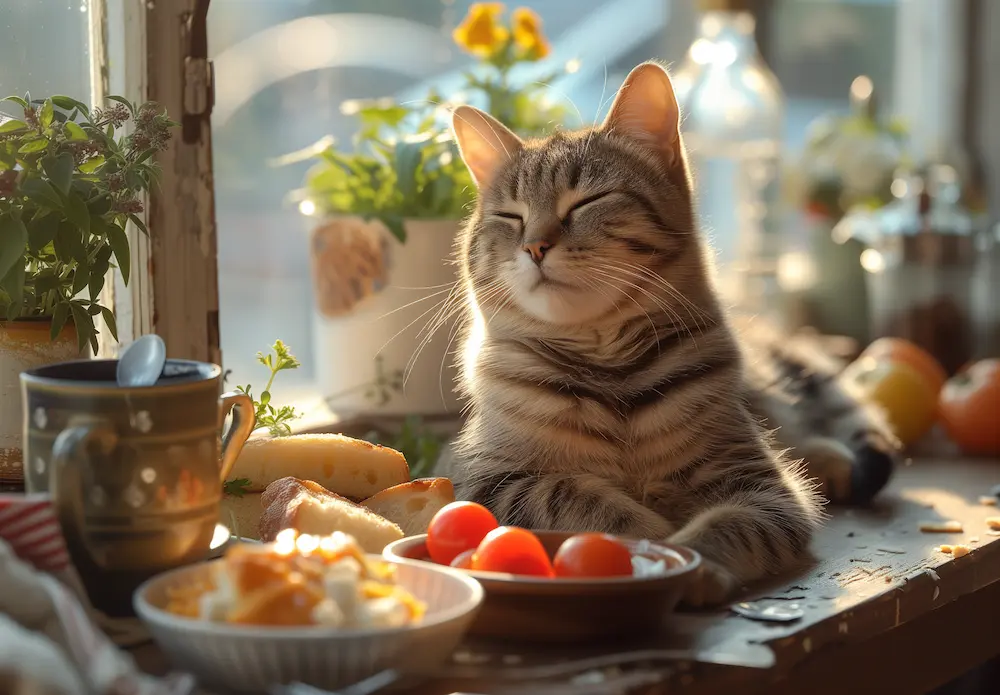
Vitamins and minerals might take a back seat to proteins and fats in terms of quantity but are just as vital for your
These micronutrients support everything from bone health to blood clotting.
For instance, vitamin A is crucial for vision, while taurine, an amino acid found in animal-based proteins, supports heart and eye health.
When selecting a
This ensures the food contains the right mix of vitamins and minerals.
Think of it like choosing a multivitamin; you want to ensure it contains everything your body needs in the right amounts.
Summarizing, picking the best
By doing so, you’ll be well on your way to providing your feline friend with a diet that supports a long, happy, and healthy life.
Best Cat Food Options
In my years of exploring the world of
Hence, I’ve delved deep into various products to bring you my top picks for
Let’s immerse.
Royal Canin Feline Health Nutrition – Canned Cat Food, 3-oz, case of 24
 Royal Canin Feline Health Nutrition - Canned Cat Food, 3-oz, case of 24
Royal Canin Feline Health Nutrition - Canned Cat Food, 3-oz, case of 24
Royal Canin Indoor Morsels in Gravy Adult Cat Food is optimized for your cat's indoor lifestyle to help them thrive. It has highly digestible proteins for healthy stools, and a precise balance of vitamins and minerals to maintain optimal health and wellness.
Plus, this gravy cat food features a highly palatable morsels in gravy texture and is suitable for spayed and neutered cats.
I’ve observed that indoor cats often struggle with weight management and hairball control.
That’s why I recommend giving this one a try.
Each serving is packed with the perfect balance of proteins, fats, and carbohydrates specifically designed for indoor felines.
Plus, the inclusion of dietary fibers helps to minimize hairballs—which, if you’re like me, you’ll appreciate since dealing with hairballs is no one’s idea of a good time.
Hill’s Science Diet Adult 7+ Savory Chicken Entree Canned Cat Food
 Hill's Science Diet Senior Wet Cat Food, Adult 7+ Savory Chicken Entrée Minced Cat Food, 2.9 oz. Cans, 24-Pack
Hill's Science Diet Senior Wet Cat Food, Adult 7+ Savory Chicken Entrée Minced Cat Food, 2.9 oz. Cans, 24-Pack
Packed with high-quality protein for lean muscle, Hill's Science Diet Adult 7+ Savory Chicken Entrée canned food uses real chicken in a succulent wet food specially formulated for mature cats.
This easy-to-digest senior cat food made with natural ingredients provides older felines with lean protein for muscle maintenance. Give the perfect balance of taste and nutrition with this smooth canned food packed with antioxidants plus vitamins C+E.
For those with senior cats, ‘Hill’s Science Diet Adult 7+ Savory Chicken Entree’ is a game-changer.
This particular product is a testament to the need for age-specific nutrition, catering to the nuanced needs of older cats, such as kidney health and muscle maintenance.
The savory chicken flavor ensures your senior
After all, taste matters regardless of age, and watching your senior
Purina Fancy Feast Gourmet Wet Cat Food Variety Pack – 48 servings
 Purina Fancy Feast Gourmet Wet Cat Food Variety Pack - 48 servings
Purina Fancy Feast Gourmet Wet Cat Food Variety Pack - 48 servings
Packaged in convenient, single-serving twin packs, our tasty soft cat food recipes let you tempt her discerning palate with no mess or leftovers. Simply snap the divided pack in half, peel back the top and serve.
While she savors the decadently delicious recipes made with poultry or fish, you'll be providing complete and balanced nutrition for the maintenance of adult cats.
And let’s not forget about those cats who are a bit more discerning in their tastes.
For the felines who prefer a bit of luxury in their dining experience, Purina Fancy Feast Petites in Gourmet Gravy packs a punch of flavor that I’ve found is universally adored by cats.
What stands out to me is how Purina has managed to combine great taste with nutrition, offering a variety of options to keep your
It’s a reminder that mealtime should be a joy, not just another routine.
Types of Cat Food: Pros and Cons
In my years of helping
I’ll break down the main types of
The Lowdown on Dry Cat Food
Dry
It’s convenient, cost-effective, and has a long shelf life, making it a solid choice for busy
Brands like Purina ONE Plus Indoor Advantage cater specifically to the needs of indoor cats with fewer calories and less fat to prevent weight gain, plus added fiber to reduce hairballs.
But, it’s crucial to remember cats are natural desert animals who often get much of their water intake from their food, so those feeding dry food need to encourage their cats to drink more water to avoid dehydration and urinary tract issues.
Mixing in some wet food or providing a
The Benefits of Wet Cat Food
Wet
This characteristic makes it particularly beneficial for cats prone to urinary tract problems or those who don’t drink enough water on their own.
Products like the Tiki Pets wet
A notable downside is its shorter shelf life once opened and the higher cost compared to dry kibble.
Nevertheless, for those looking to mimic a more natural diet for their pets or manage specific health issues, wet food is an invaluable part of a
Raw and Fresh Food Diets
Venturing into raw and fresh food diets can seem daunting due to concerns about nutritional balance and foodborne illnesses.
But, when done correctly, it mirrors the diet cats would naturally consume in the wild.
This type of diet is rich in animal protein and low in carbs, aligning with what many nutritionists view as optimal for cats.
The key is ensuring the diet is balanced and safe, potentially involving supplements to meet all nutritional needs.
Companies like Stella & Chewy’s offer freeze-dried raw options that simplify the process, providing the benefits of raw feeding without the hassle of preparing it from scratch.
If considering this route, consultation with a vet or a pet nutritionist is crucial to avoid nutritional deficiencies or health risks.
Home-Cooked Cat Food
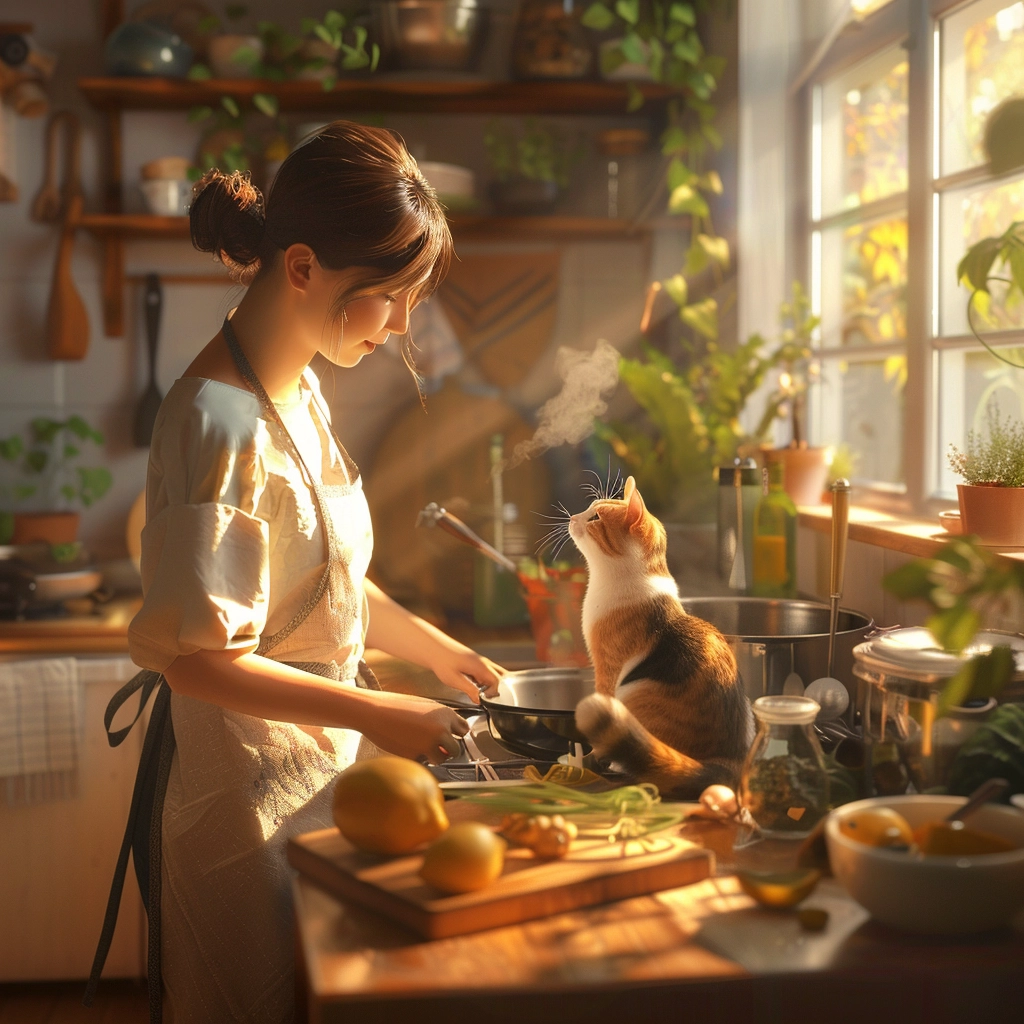
The idea of preparing home-cooked meals for your
It allows for complete control over the ingredients, making it an attractive option for cats with specific dietary needs or allergies.
But, it requires a substantial commitment to ensure meals are nutritionally complete and balanced.
It’s not as simple as sharing your dinner with your
Expert guidance from veterinary nutritionists is essential to develop recipes that meet all your
While labor-intensive, for those willing to invest the time and resources, home-cooked diets can offer a unique way to bond with your pet and tailor their nutrition closely.
To conclude, selecting the right type of
Regardless of the path you choose, ensuring a balanced diet developed with professional input is key to promoting a long, healthy, and happy life for your feline friend.
Evaluating Cat Food Quality
Deciding on the right
But, I’ve learned the importance of breaking it down to the basics when evaluating
Let’s jump into some crucial aspects that make the task a bit easier.
Understanding the AAFCO Statement
The AAFCO, or the Association of American Feed Control Officials, sets nutrition standards for pet foods.
Seeing an AAFCO statement on your
But, it’s crucial to understand that this statement comes in two forms: one for “All Life Stages” and another for specific life stages (e.g., “Adult Maintenance”).
The “All Life Stages” food might seem like a versatile option, but it’s essentially formulated for the most nutritionally demanding of life stages, like growth and reproduction.
Hence, while it’s certainly comprehensive, it might not be the best fit for a senior
In contrast, an “Adult Maintenance” food focuses on the needs of adult cats, ensuring they get the right nutrients without the excess that could lead to weight gain.
The Importance of Ingredient Sourcing
The quality and source of ingredients in
High-quality ingredients mean higher digestibility and more beneficial nutrients.
For instance, chicken, turkey, and fish listed as the first ingredient is a good sign, indicating high protein content from real meat.
But, it’s not just about the first ingredient; the source of these ingredients is equally critical.
Ethically sourced ingredients that are human-grade not only ensure better safety standards but also tend to be richer in essential nutrients.
I always recommend looking for brands that are transparent about where they source their ingredients.
Brands that partner with reputable suppliers or use local, sustainably sourced ingredients typically offer higher quality and safety for your furry friend.
Ingredients to Avoid
Just as important as knowing what good ingredients look like is recognizing what to avoid.
Certain ingredients pop up in
Avoid foods containing excessive amounts of corn, wheat, and soy, which are often used to bulk up the product but offer little nutritional value to your
Also, by-products are a red flag.
While not all by-products are bad (some can be a source of protein), they’re often used to cut costs and can vary wildly in quality.
Also, steer clear of artificial colors, flavors, and preservatives like BHA, BHT, and ethoxyquin, which have been associated with health risks in pets.
Instead, look for natural preservatives such as Vitamin E (tocopherols).
Remember, the simpler the ingredient list, the easier it is to understand what you’re feeding your
Exploring the world of
Understand the AAFCO statements to ensure nutritional adequacy, emphasize ingredient sourcing for higher quality nutrition, and avoid harmful fillers and chemicals.
With these tips, I’m confident you’ll find the best food that keeps your
Age-Specific Nutrition for Cats
Feeding our feline friends the right diet at every stage of their life is crucial for their overall health and well-being.
But, exploring through the plethora of options can be daunting.
Let me break it down for you.
Kitten Cat Diet
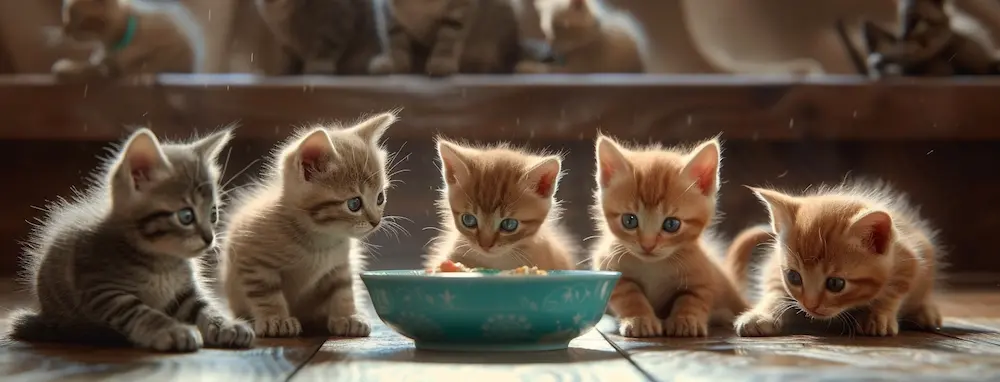
The early months of a kitten’s life are pivotal for their growth and development.
Hence, I always recommend selecting a kitten formula that’s rich in animal-based proteins.
These proteins are essential for building strong muscles. For example, brands like Purina ONE Grain Free Natural Paté Wet Kitten Food offer a great start with high-quality proteins from chicken and salmon.
Kittens also need a higher calorie content to fuel their playfulness and energy.
Remember, these tiny furballs are developing their vision, building their immune systems, and growing rapidly; nutrients like DHA are essential for brain and vision development.
Think of kitten food as the building blocks—they need the right ones to build a strong foundation.
Adult Cat Diet
As cats transition from playful kittens to serene adults, their nutritional needs shift.
Adult
It’s important to find a balance between providing enough energy and preventing excess weight gain.
For indoor cats, I find that lower-calorie foods, such as Purina ONE Plus Indoor Advantage, help maintain a healthy weight while still offering a delicious meal.
It contains real turkey and a variety of vitamins and minerals, supporting everything from muscle health to a shiny coat.
Portion control plays a significant role in this stage.
Even the best food, when overfed, can lead to weight issues. I recommend dividing the daily food intake into two or more meals, which can also help keep their digestive system on track.
Senior Cat Diet
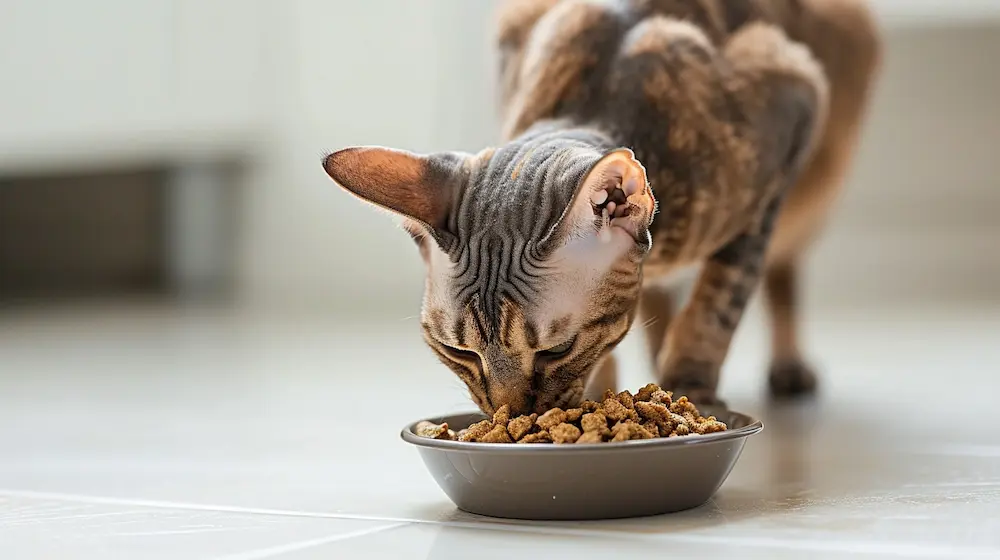
Our senior cats have different needs.
Their metabolism slows down, and their digestive systems may not be as robust.
Foods designed for seniors tend to have higher fiber content to aid digestion and contain supplements like glucosamine for joint health.
One of the main concerns for elderly cats is kidney health.
So, a diet low in phosphorus and sodium can be beneficial.
Hydration becomes increasingly important, so incorporating wet food into their diet can help.
The Purina Pro Plan senior formulas, for instance, are tailored to address these aging concerns, focusing on kidney health and maintaining lean muscles.
Remember, senior cats may also need smaller, more frequent meals as their appetite can wane with age. Keeping an eye on their hydration levels is key, so always make sure fresh water is available.
Transitioning between life stages can be smooth if you’re paying attention to your
Consult with your veterinarian for tailored advice, especially when introducing a new diet.
After all, our goal is to ensure our furry companions live long, healthy, and happy lives by our side.
Special Dietary Needs and Considerations
Caring for our feline friends means paying close attention to their dietary needs, especially when special considerations come into play.
Whether it’s managing weight, addressing sensitive stomachs, or exploring the tricky waters of food allergies and intolerances, I’ve delved into these topics to provide you with practical advice.
Let’s explore these aspects together and ensure your
Weight Management for Overweight Cats
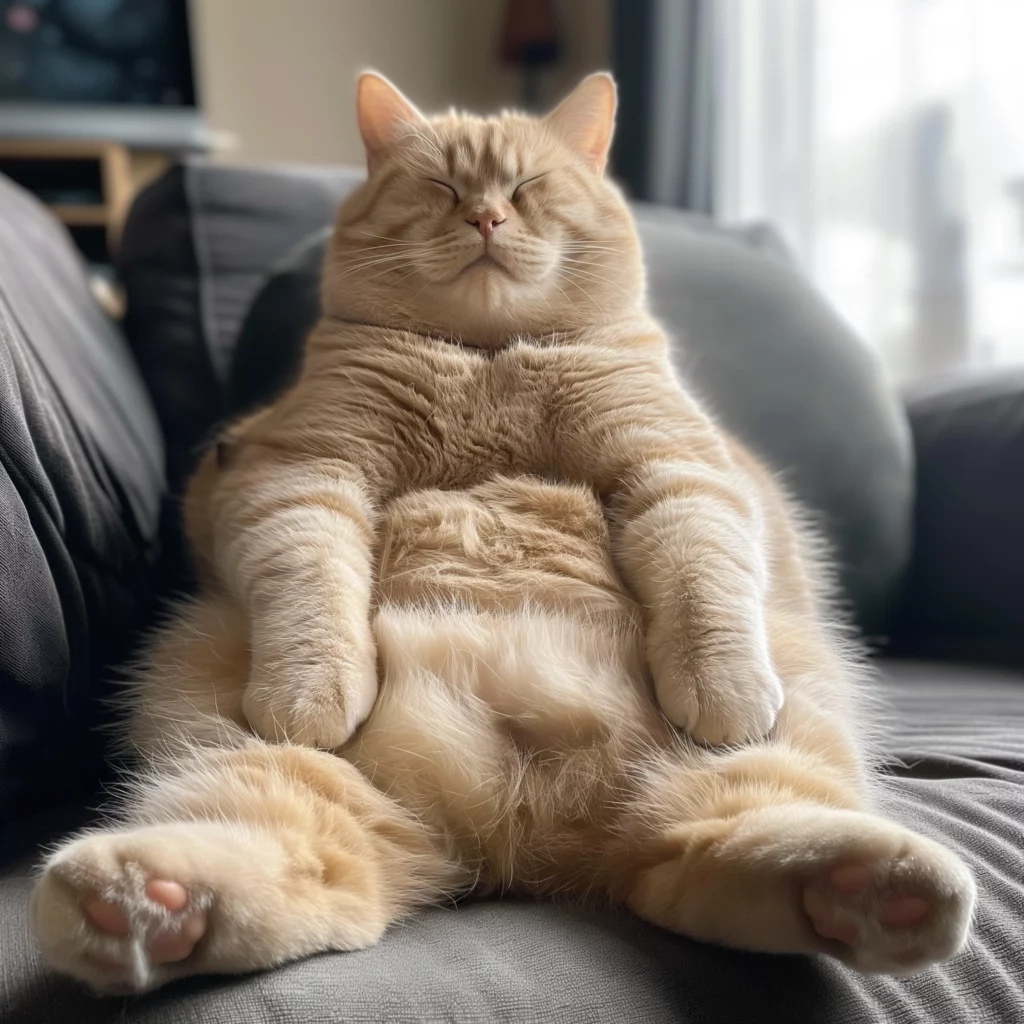
For our chubby feline pals, finding the right diet is crucial.
Overweight cats face numerous health risks, including diabetes and joint problems.
Hence, a high-protein, low-carbohydrate diet often works wonders, mimicking a more natural prey diet.
Foods like Tiki Pets’ wet
Remember, portion control and regular vet check-ups are key in monitoring progress.
Incorporating wet food can also aid in weight loss.
It provides the hydration cats often lack while making them feel full faster.
My advice?
Start with the recommended feeding guide on the packaging but adjust as necessary based on your
Consistency is your best friend here, and so is patience.
Sensitive Stomach Solutions
Dealing with a
The answer often lies in finding a diet that’s easily digestible and low in irritants.
Royal Canin’s Sensitive Digestion Dry
Foods that include probiotics and prebiotics can also support a healthy gut flora, improving digestion.
I’ve found that gradual transitions to new foods over a period of 7-10 days can minimize digestive upset.
Keep a diary of your
Exploring Food Allergies and Intolerances
Food allergies in cats can manifest in various ways, from skin issues to gastrointestinal symptoms.
Identifying the culprit often involves a process of elimination, starting with a diet that cuts out common allergens such as beef, dairy, and fish.
Hydrolyzed protein diets, where the protein is broken down so the immune system doesn’t react to it, can be especially beneficial.
Consultation with a vet is paramount for an accurate diagnosis and treatment plan.
They may recommend a prescription diet or a homemade meal plan tailored to avoid the allergens.
Always read labels carefully and introduce new foods slowly, keeping an eye out for adverse reactions.
Summarizing, special dietary needs in cats require careful consideration, observation, and sometimes a bit of trial and error.
Keeping in close communication with your vet, staying informed about potential solutions, and being patient as you navigate these challenges will ensure your
Remember, each
It’s about finding that perfect balance to meet their individual needs.
Choosing the Right Cat Food
Selecting the right food for our feline friends is more than a matter of picking the most expensive option off the shelf; it’s about understanding what constitutes high-quality
I’ve delved into the world of
Price vs. Quality: Striking a Balance
The adage “you get what you pay for” often holds true in the world of
But, that doesn’t mean the most expensive option is always the best choice for your pet.
High-priced foods usually boast premium ingredients, including real meat as the first component, fewer fillers like corn or wheat, and a comprehensive list of vitamins and minerals.
On the flip side, budget-friendly options sometimes cut corners with meat by-products and add unnecessary fillers.
Yet, it’s entirely possible to find a middle ground.
Look for brands that offer the nutritional balance your
For example, some lesser-known brands might not spend much on advertising but invest in high-quality ingredients.
The key is to read and understand the labels.
If the first ingredients are meat-based and it’s complete with essential nutrients, you’re on the right track, regardless of the price.
Brand Reputation and Customer Satisfaction
When I’m evaluating
Brands that consistently receive positive feedback for their product quality, customer service, and ethical practices earn my trust.
It’s not just about the number of stars in a review but the stories behind them.
Did the brand handle complaints well?
Is there evidence of loyal customers whose cats have thrived on this food for years?
Also, recall history plays a critical role.
A brand with multiple recalls might indicate systemic issues in quality control, whereas a clean record suggests reliability.
Remember, reputable brands are transparent about their manufacturing processes, ingredient sourcing, and nutrition philosophy.
Environmental and Ethical Considerations
In today’s world, many of us are looking for ways to make more eco-friendly and ethically sound decisions, and choosing
I prioritize companies that demonstrate a commitment to sustainability, whether through responsible ingredient sourcing, eco-friendly packaging, or supporting wildlife conservation efforts.
Besides, animal welfare certifications on packaging can indicate that the meat comes from facilities that treat animals humanely.
Take, for instance, brands that use wild-caught fish certified by the Marine Stewardship Council.
This certification ensures that the fish population is sustainable and that fishing methods minimize environmental impacts.
Similarly, brands that opt for recyclable packaging materials help reduce the ecological footprint of our pet’s diet.
To conclude, finding the right
By doing a little assignments and reading beyond the marketing jargon, you can select a
Remember, each
With these guidelines, I’m confident you’ll find the perfect fit for your furry companion.
Frequently Asked Questions
What are the top 5 healthiest cat foods?
Fancy Feast Gravy Lovers Ocean Whitefish & Tuna Feast, Purina Pro Plan LiveClear Probiotic Chicken & Rice Formula, and Iams Proactive Health Indoor Weight & Hairball Care are among the top choices due to their high-quality ingredients and nutritional balance that meet or exceed AAFCO standards.
Is IAMS or Purina one better for cats?
Purina is considered the better choice for a wider variety of
What cat food do most vets recommend?
Vets often recommend Royal Canin for its comprehensive nutritional profile, Whiskas for value, Purina Gourmet for quality wet food, Hills Science Plan for kittens, and Republic of Cats for senior
What is the best food Type to feed your cat ?
The best food to feed your
Avoid raw or spoiled meats to prevent illness.
What is the absolute healthiest cat food?
Wellness Complete Health Salmon & Herring Indoor
Conclusion: Making an Informed Choice for Your Feline Friend
Choosing the right
It’s about understanding your furry friend’s health needs and aligning them with your values.
I’ve learned that it’s crucial to look beyond the price tag and consider the nutritional quality, the brand’s reputation, and how their practices impact the environment.
Remember, every
So, it’s essential to monitor their health and adjust their diet as needed, always with a vet’s guidance.
Let’s make sure our choices support not only the well-being of our beloved pets but also the planet we all share.
Happy feeding!
